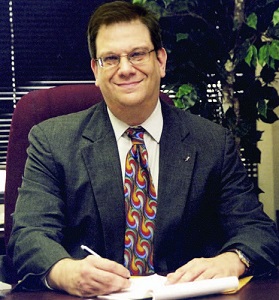December 2015 Vol. 242, No. 12
Editor's Notebook
Editor's Notebook: Winners, Losers and Keystone XL Debacle

I have some final thoughts about the Keystone XL debacle, because that’s what it was. That project never should have been the line in the sand in the debate over climate change, because as we all know, any environmental effect would have been negligible at worst.
Who are the winners? The environmentalists and their fossil-fuel hating friends; President Obama, who deluded many of us into actually believing he would give Keystone a fair shake; OPEC and other foreign sources of crude, because they have again helped cripple our industry; maybe the oil sands region itself since this form of extraction is not the best method of recovering oil; and my late colleague Carol Freedenthal, who bet me years ago that Obama would never approve Keystone.
Who are the losers? The tens of thousands of workers who would have found direct and indirect employment during the construction phase; the entire U.S. fossil fuel industry, which will face even more ferocious challenges from the re-energized, well-funded anti-fossil fuel movement; the Province of Alberta, which is in recession; Canada itself, which relies on energy exports for much of its revenue; the public whose only concern has always been where they can find the cheapest gasoline but will one day see prices rise because developers will be wary of investing in new infrastructure; and TransCanada, one of the world’s foremost pipeline construction companies, which has suffered unwarranted criticism.
Add the American Petroleum Institute, which wasted millions of dollars through inept PR and ceaseless attacks on the administration, to the list of losers. A note to API CEO Jack Gerard, Mitt Romney’s close pal and former 2012 campaign treasurer: your tone may satisfy those who pay you, but it doesn’t help make friends and can come back to bite, especially when you need someone to lift that ban on oil exports.
There has always been divisiveness between the fossil fuel industry and its detractors. It’s far worse than ever, thanks in part to a savvy, manipulative president, a stubborn industry strong on technology but lousy at relationship-building, and a clueless public.
Recall that President Obama had to be dragged kicking and screaming into the shale revolution. He never did like oil, but he seemed to like natural gas, or at maybe that’s what he wanted us to think. Once the Marcellus kicked in, natural gas was no longer being discussed as just a “bridge” fuel to transition to his much-preferred renewables, but as the fuel for the 21st century.
He has backpedaled ever since, evidenced by his climate change strategy, and speaks to us with a forked tongue: taking credit for the record amounts of gas and oil produced during his administration – as if he deserves credit – then demanding to know why the oil and gas industry needs tax breaks. In fact, that’s one of the bargaining chips he’s thrown at the industry in return for maybe lifting the export ban.
You have to hand it to Obama and he has to hand it to the shale revolution. The energy boom helped drag the nation out of the Great Recession, but as sometimes happens in a free-market economy, the producers became a victim of their own success. Oil output continued to rise, demand slid, and OPEC decided to teach us another lesson. As interest in climate change became Obama’s “legacy” issue, the need for Keystone was stalling because of an oversupplied market.
So Obama gets the best of all worlds: a strong economy; 5% unemployment (he never says a word about the burgeoning jobless numbers in oil and gas); a timely chance to burnish his image as the global leader against climate change; motorists loving $2 gasoline; all the while watching his most disliked industry staggering against the ropes, waiting for the knockout blow, which may come if he gets the chance to kill the bill lifting the export ban, all in the guise of protecting American consumers against higher gas prices.
A final thought: sometimes delays work to our benefit for projects that ultimately are not built, i.e., the Alaskan gas pipeline. Most observers now question the need for Keystone, particularly with crude far from the $70 threshold it takes to make the oil sands viable. When they need to, producers always seem to find a way to deliver their product. What worries me is the opposition to any new projects.
And yes, Carol, I am making that donation to the American Heart Association.





Comments